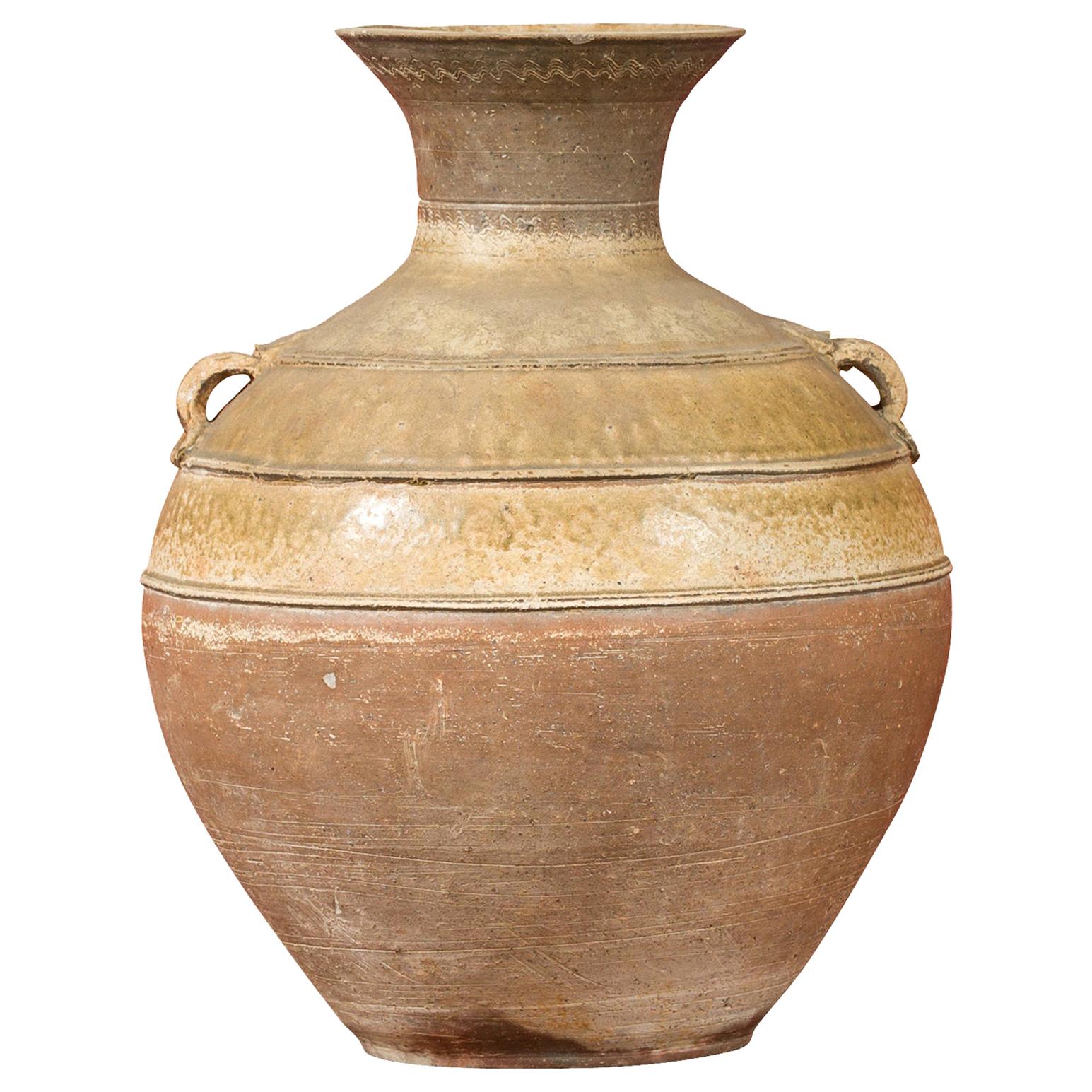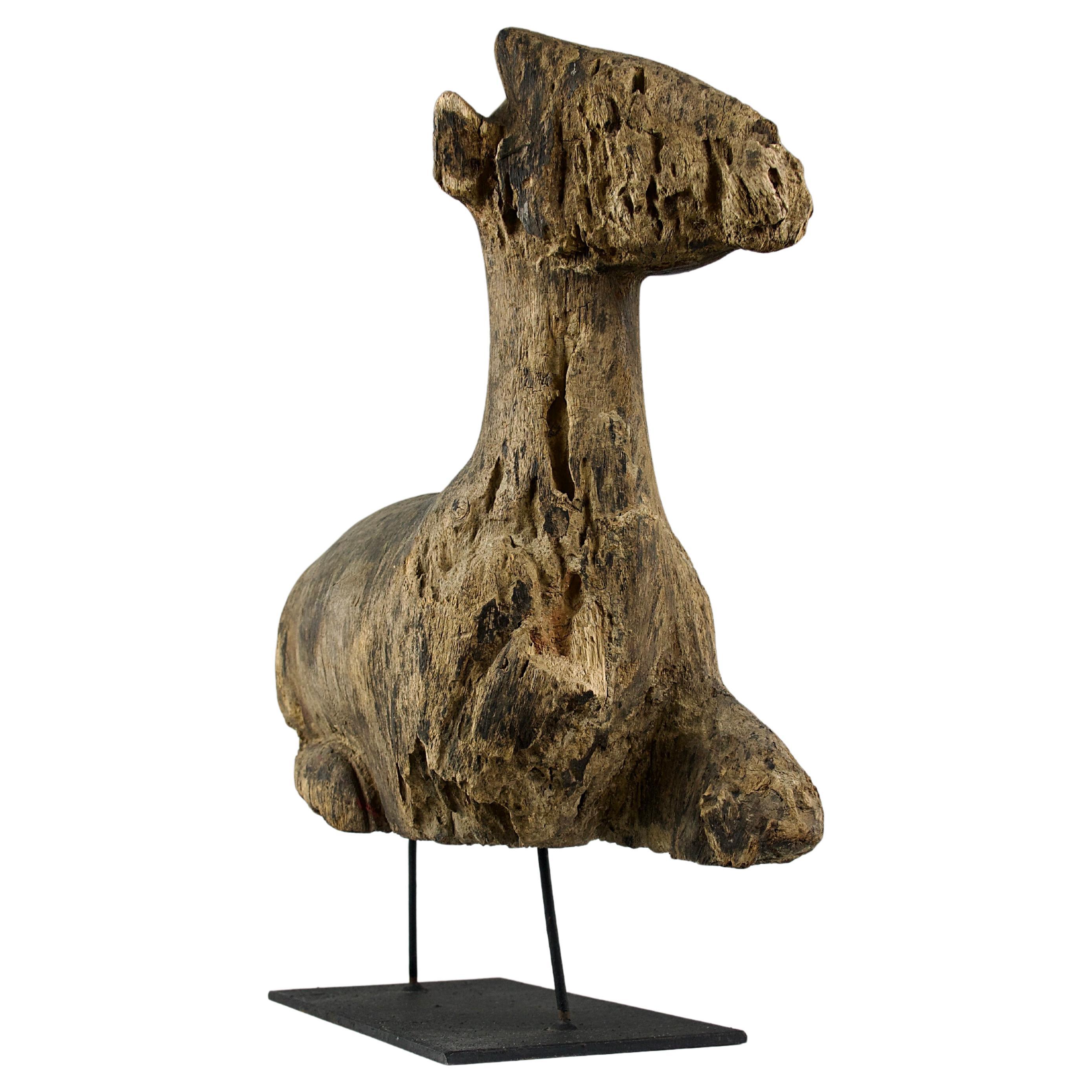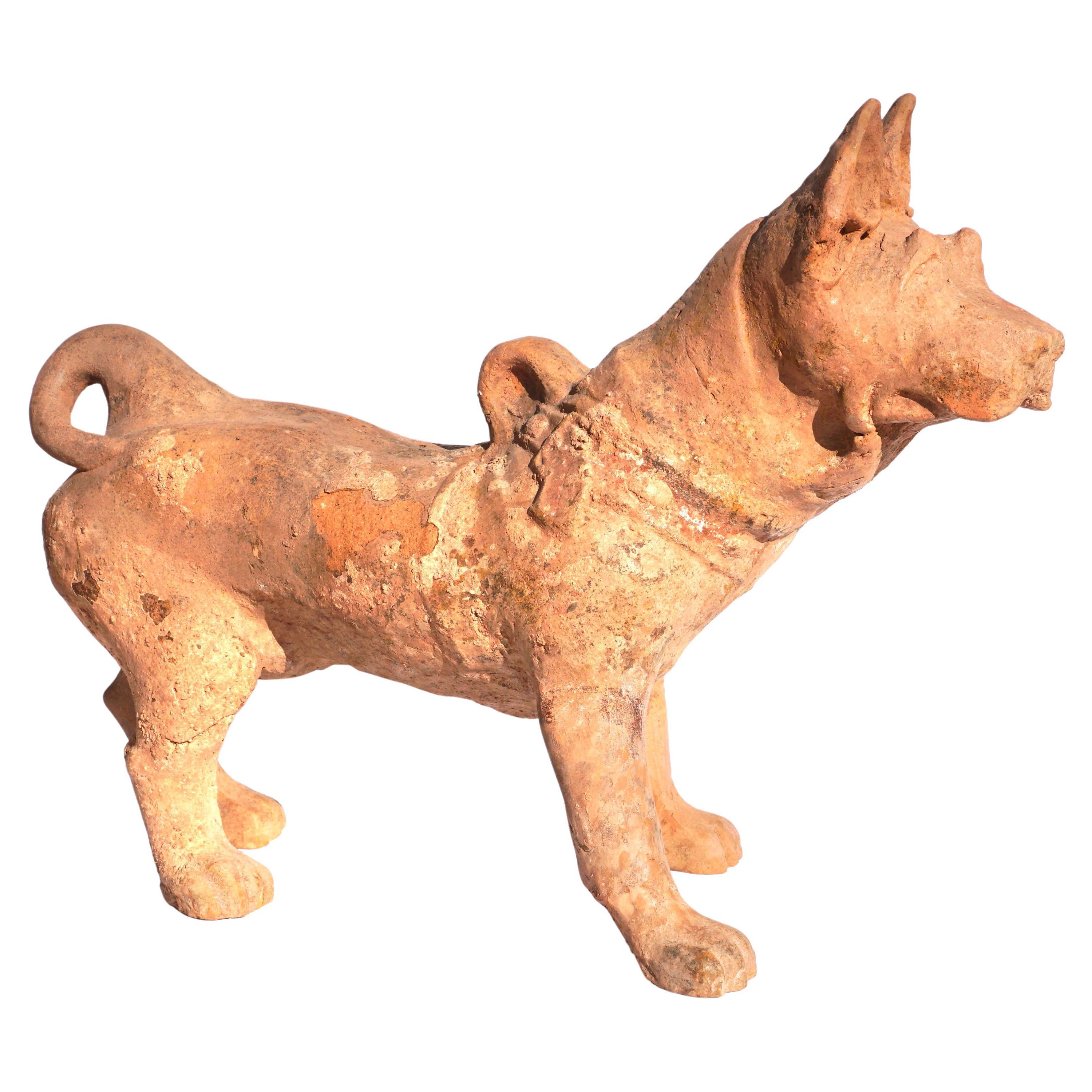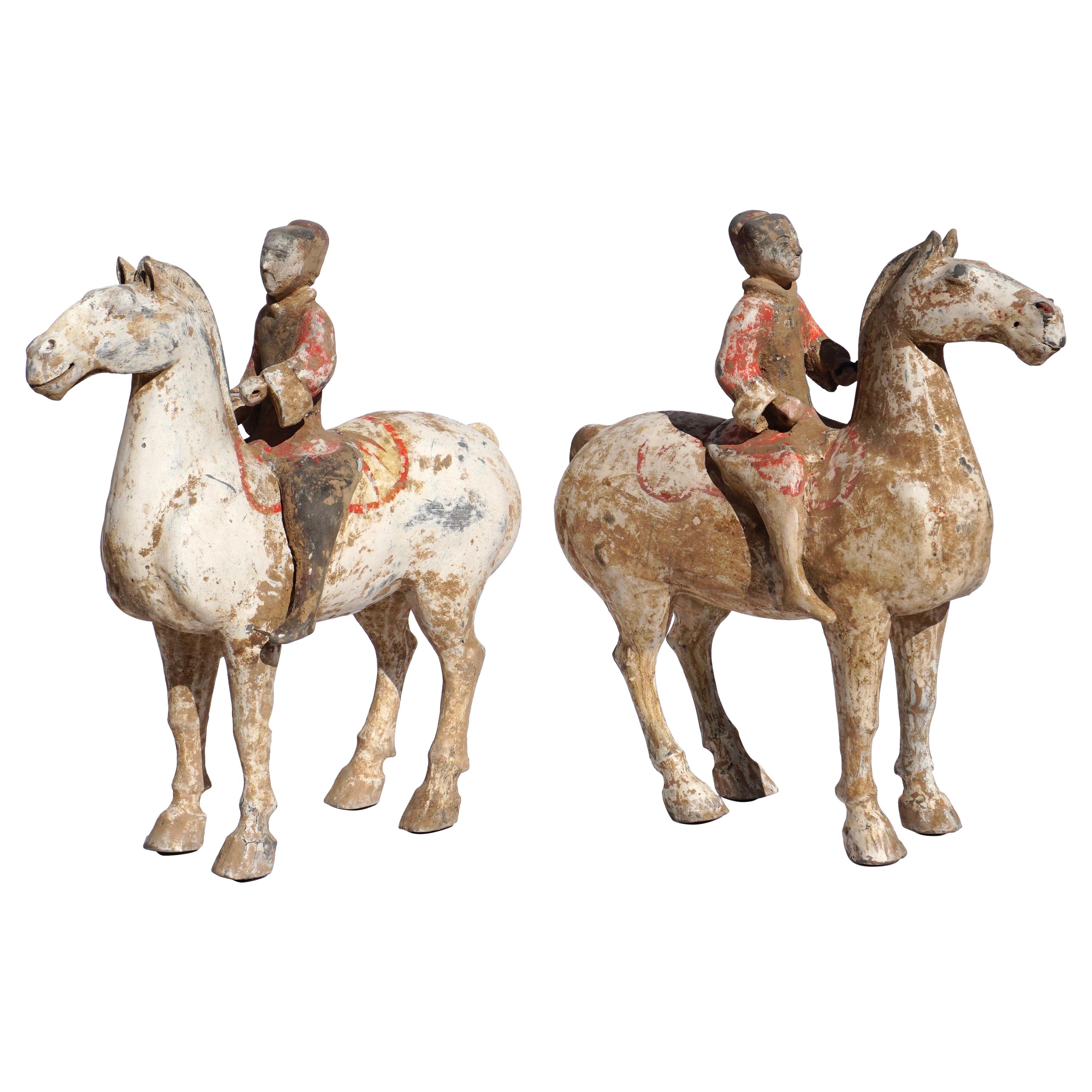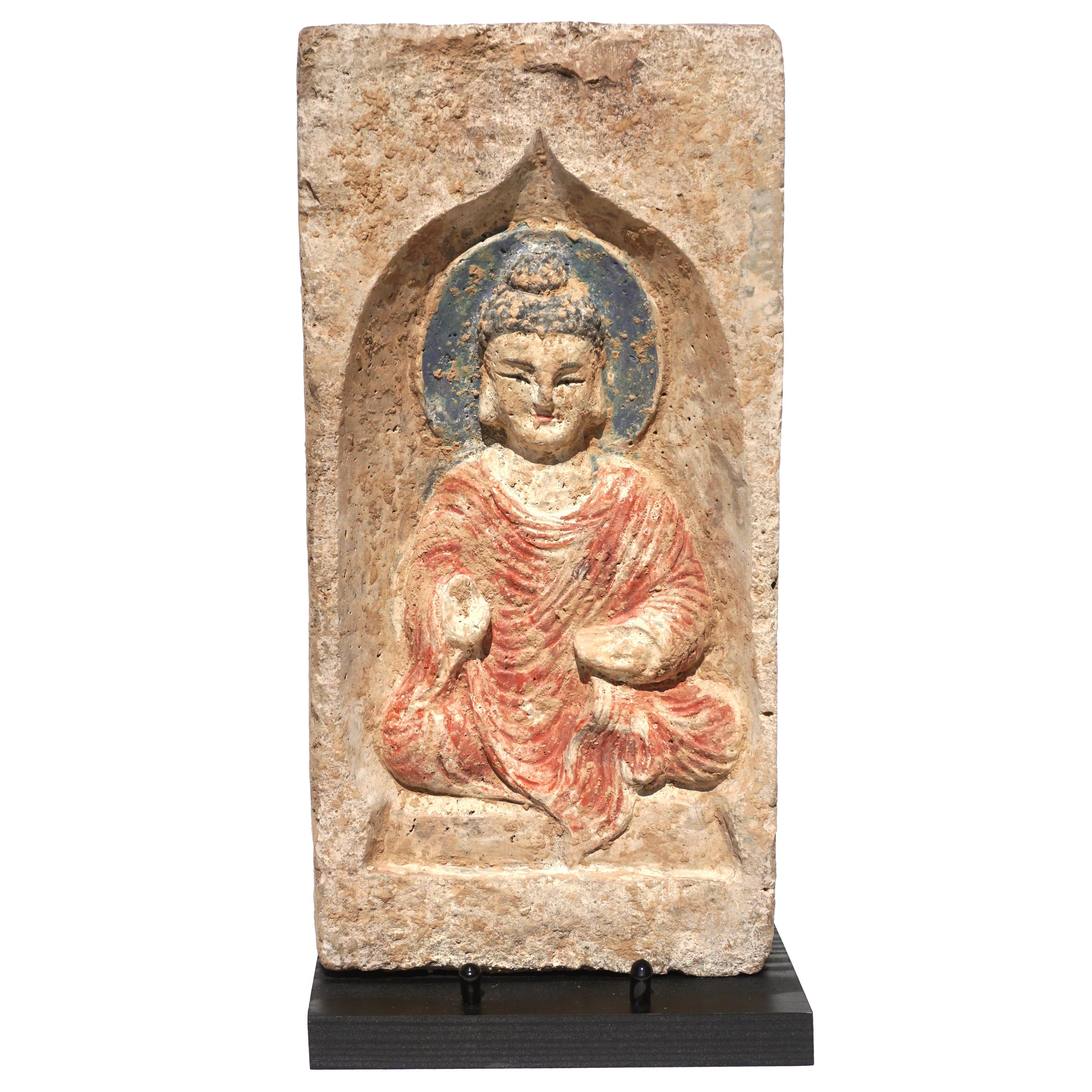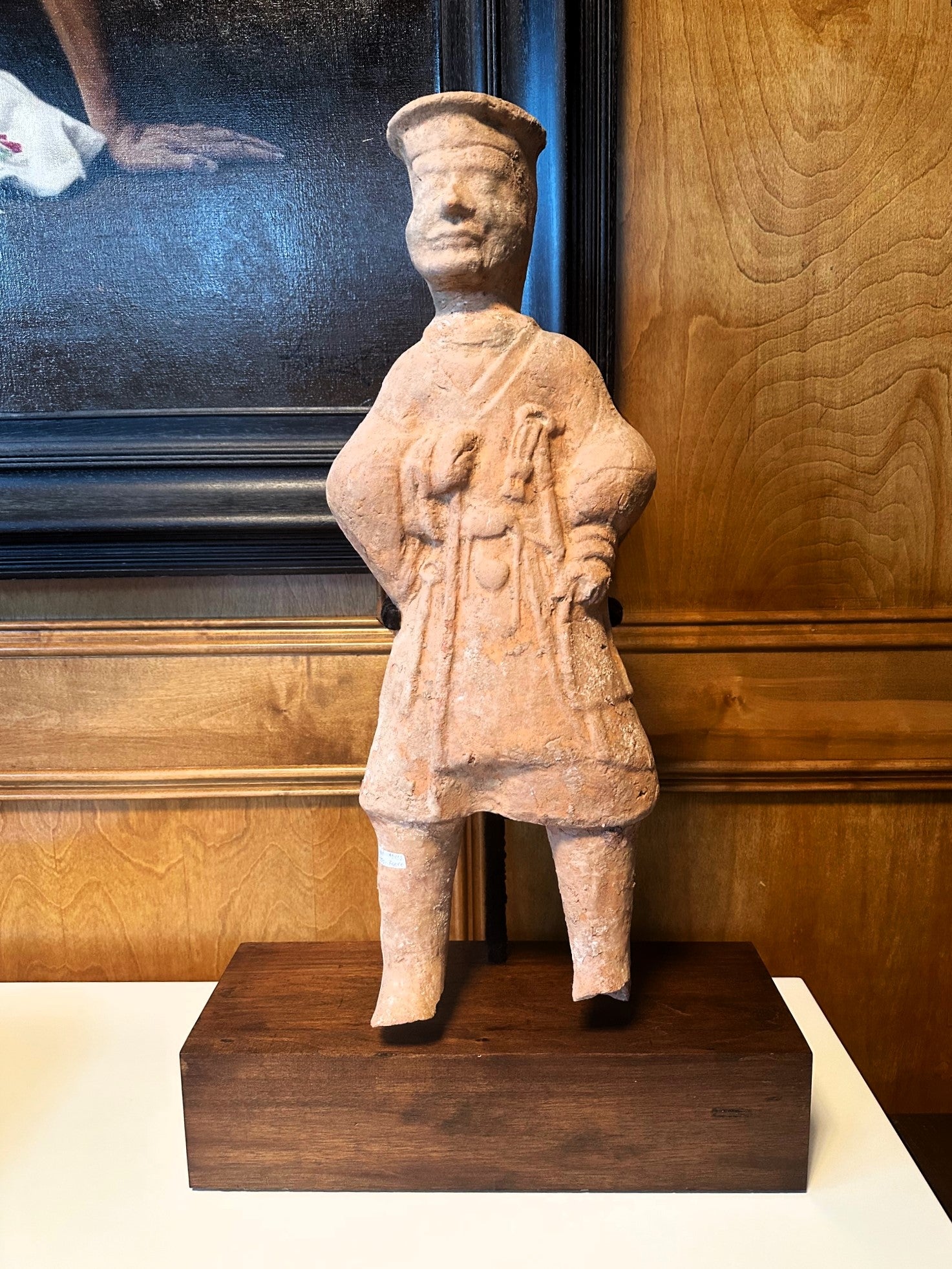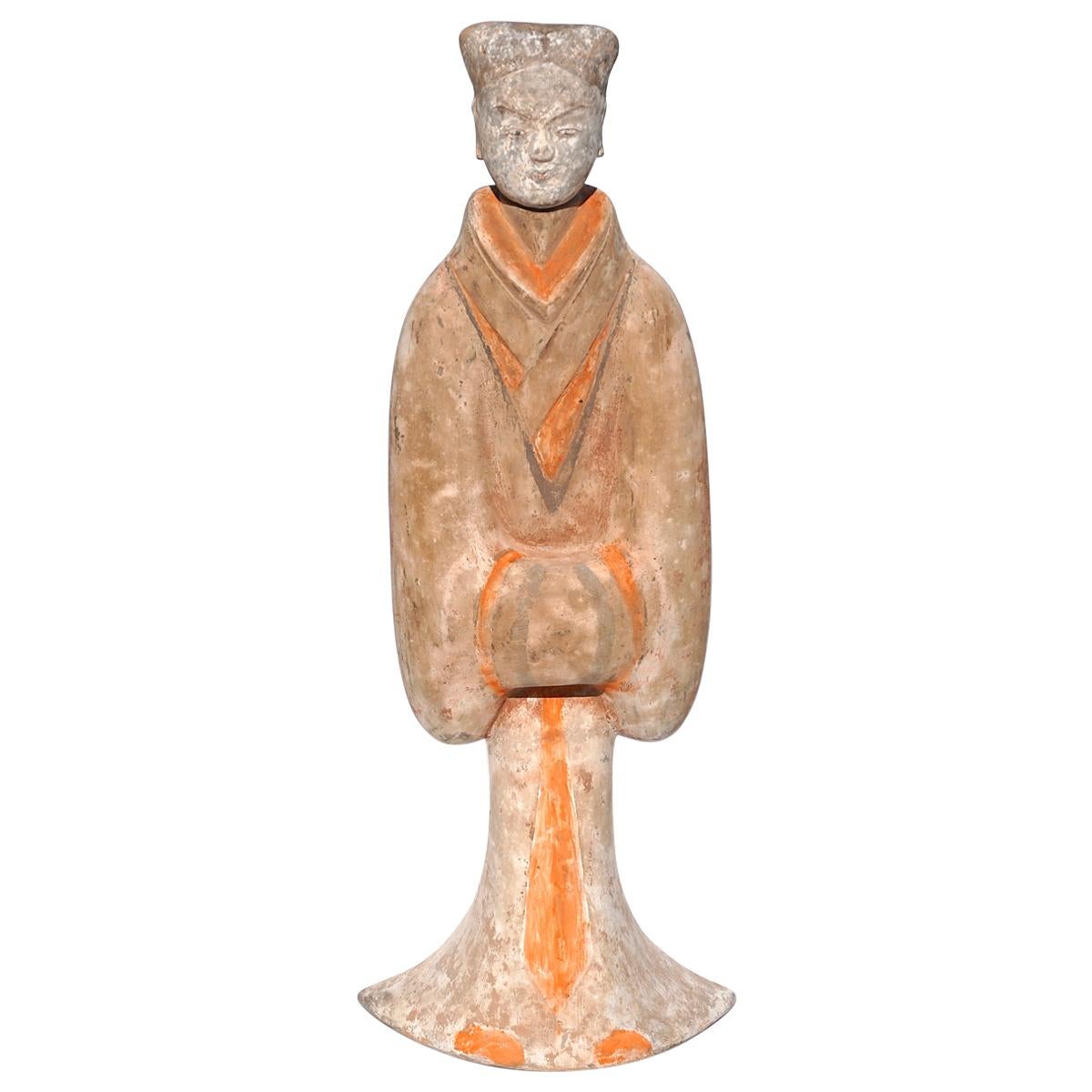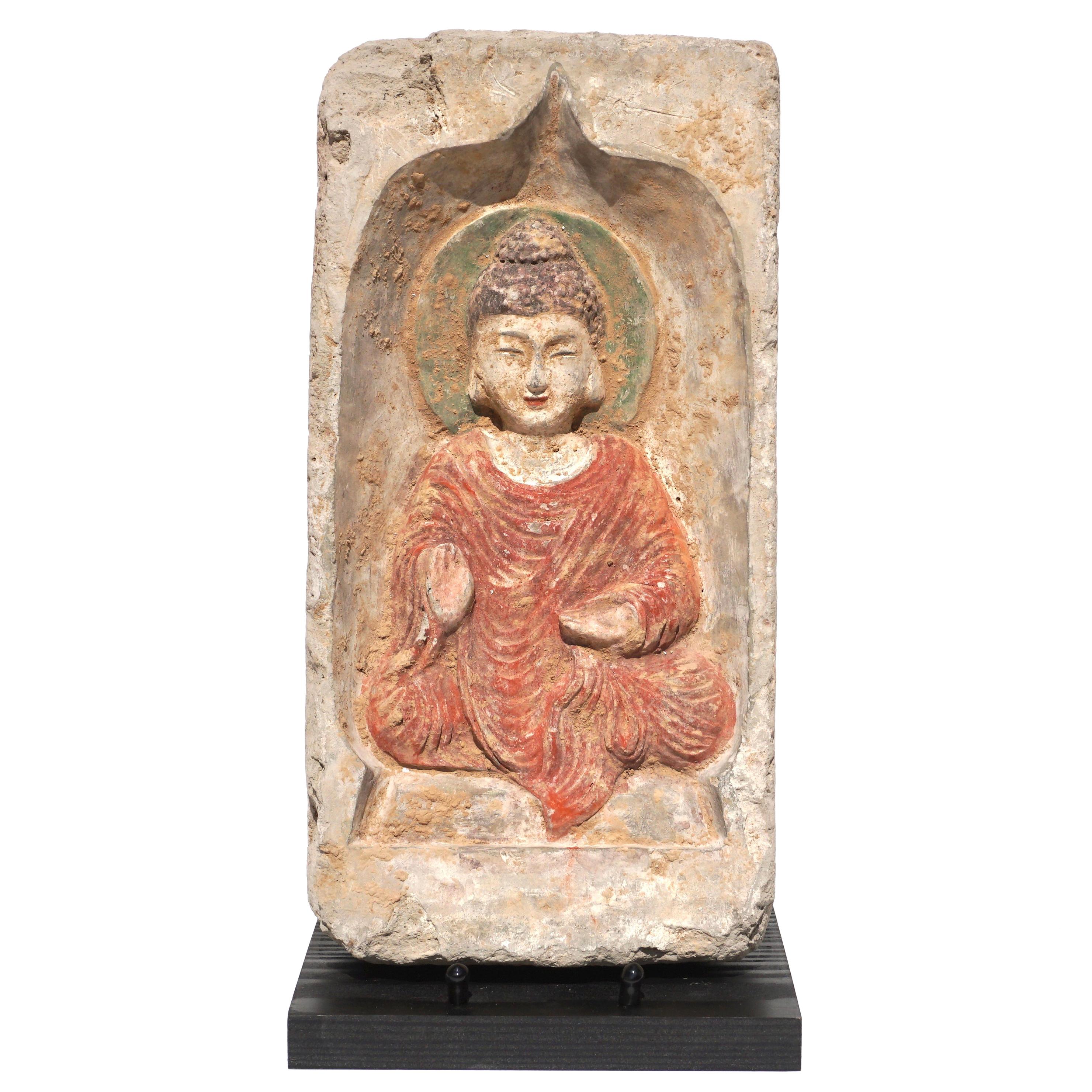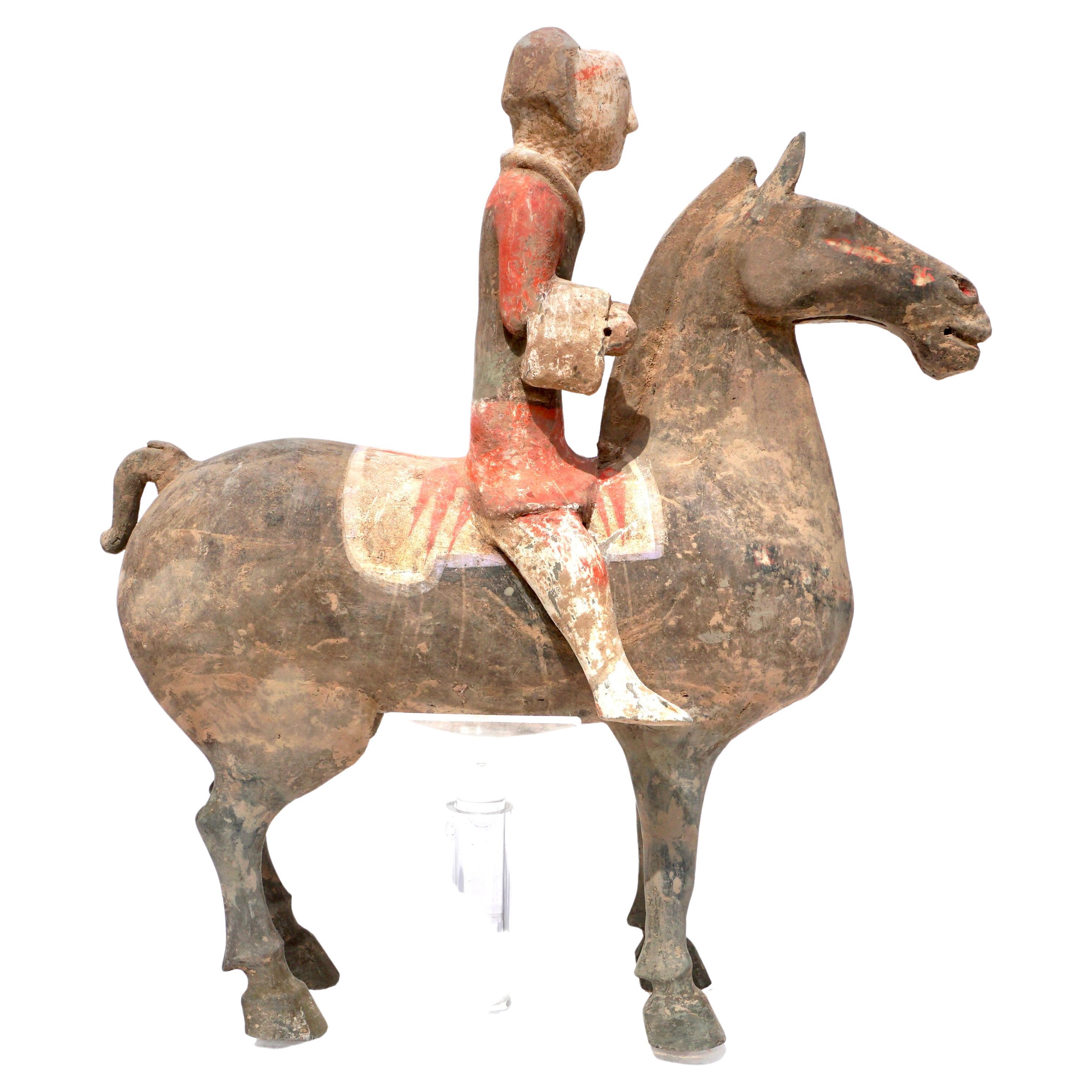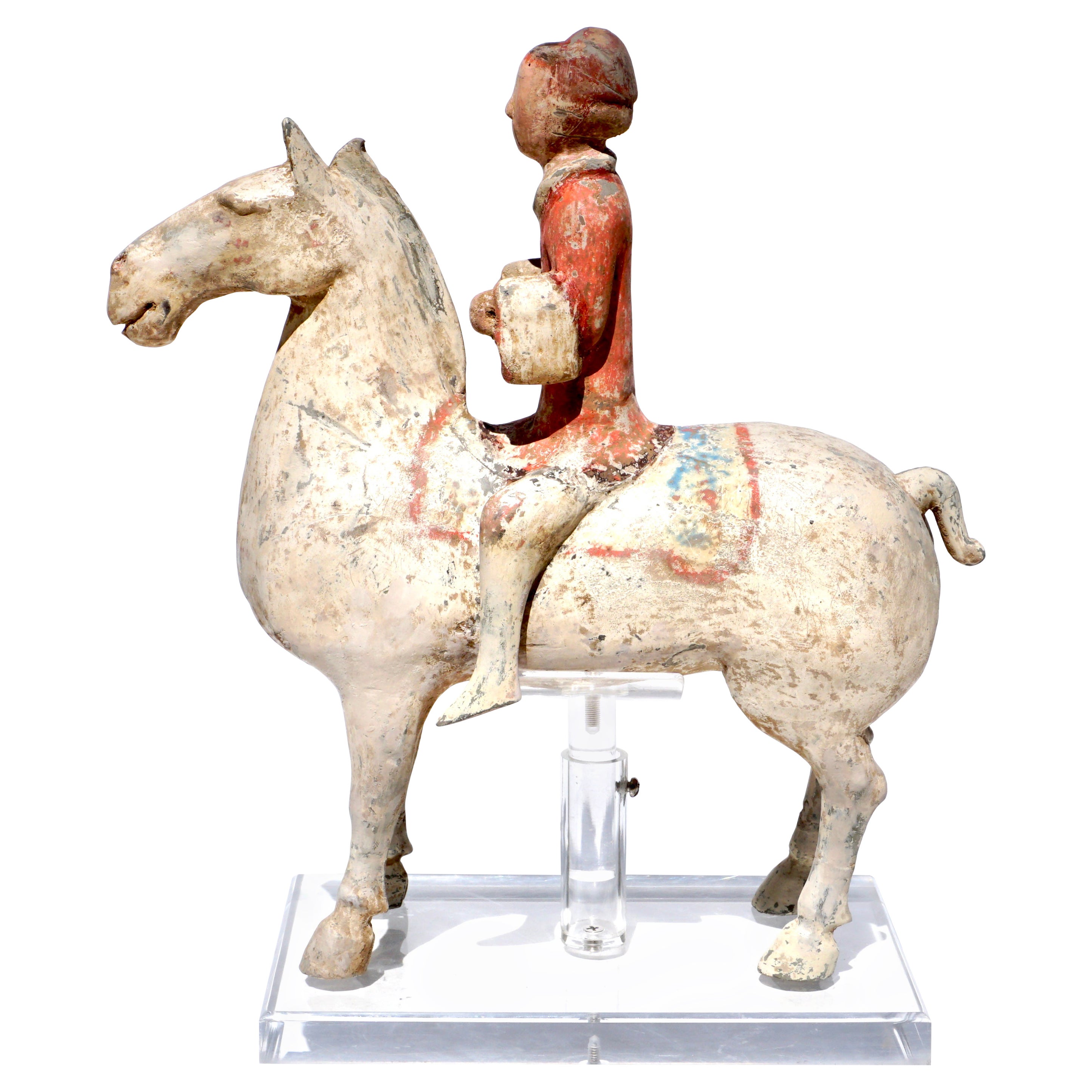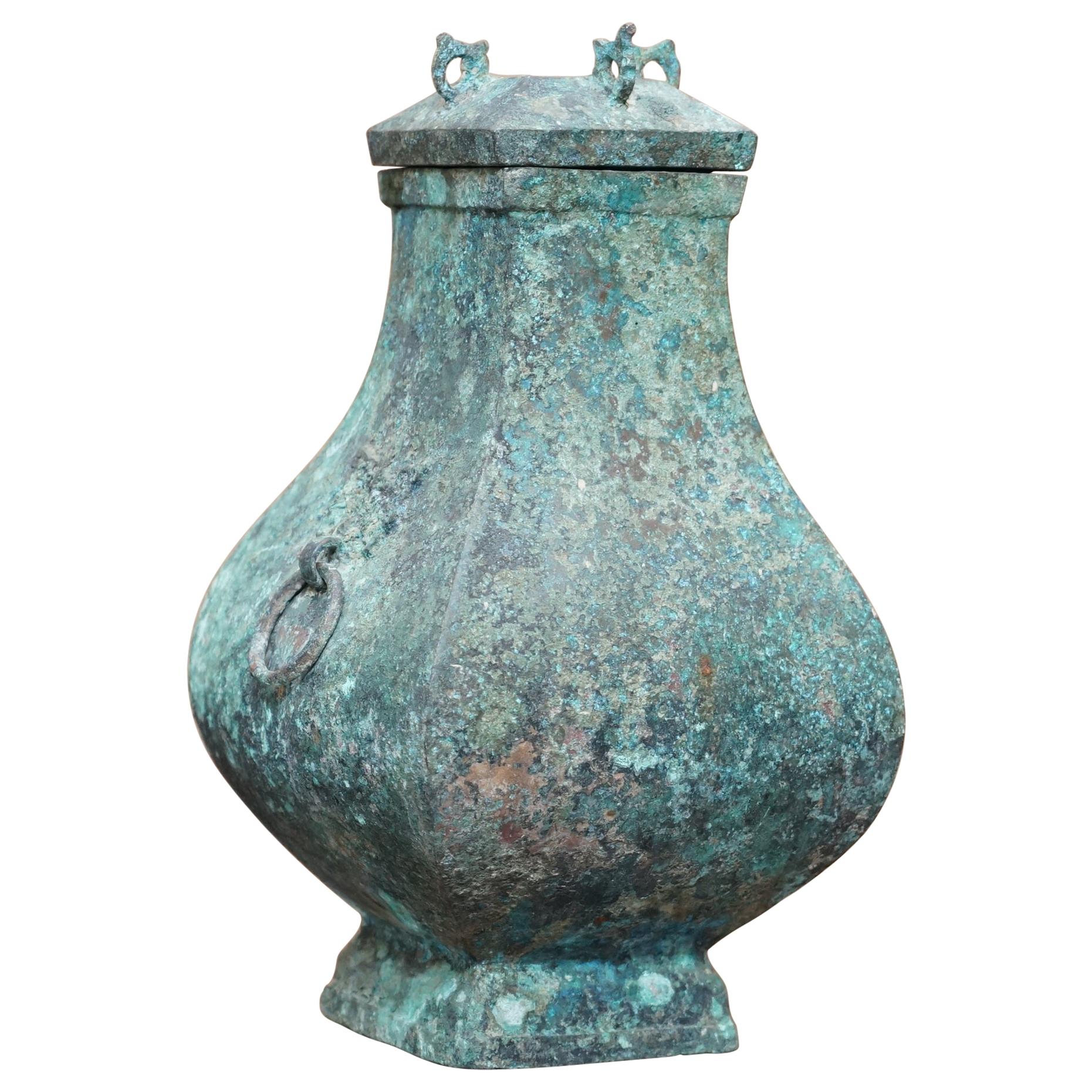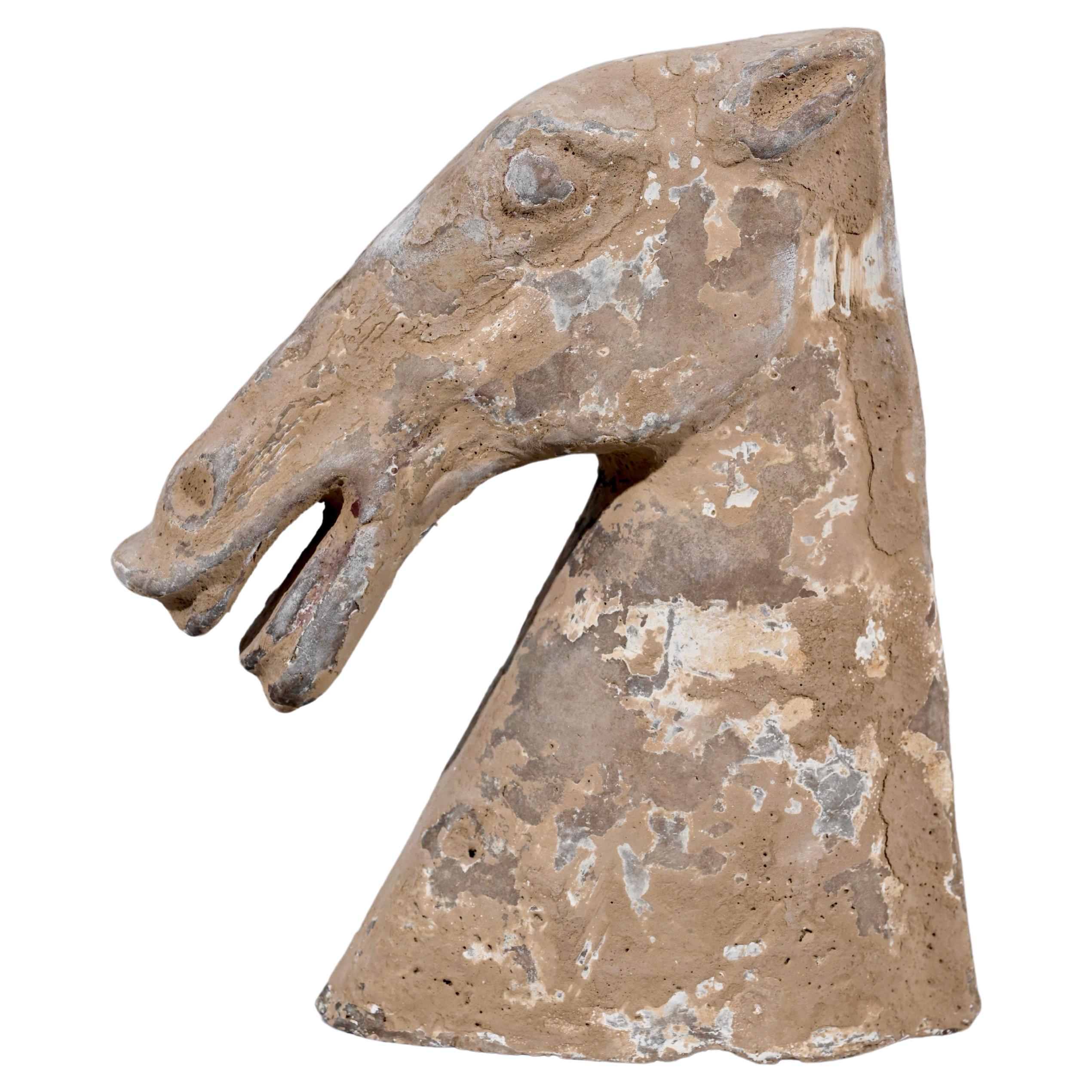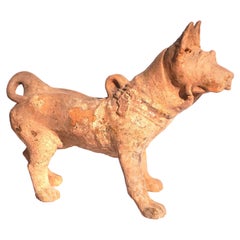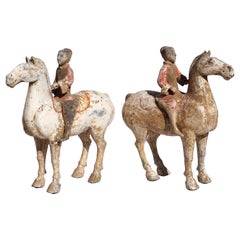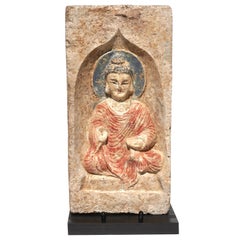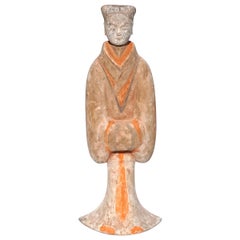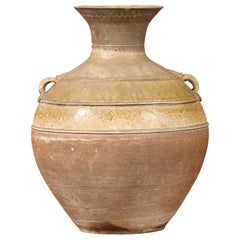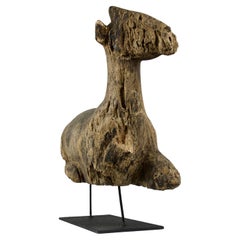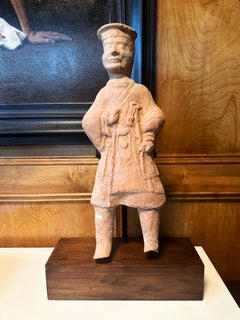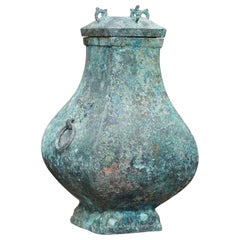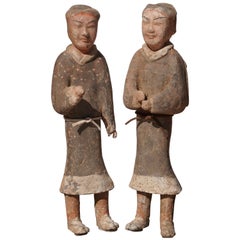
Large Pair of Han Dynasty Guardsmen Warriors '200BC-200AD' Attributed
View Similar Items
Want more images or videos?
Request additional images or videos from the seller
1 of 12
Large Pair of Han Dynasty Guardsmen Warriors '200BC-200AD' Attributed
About the Item
- Dimensions:Height: 16.5 in (41.91 cm)Width: 5 in (12.7 cm)Depth: 3 in (7.62 cm)
- Style:Han (Of the Period)
- Materials and Techniques:
- Place of Origin:
- Period:
- Date of Manufacture:200 BC
- Condition:Wear consistent with age and use.
- Seller Location:Dallas, TX
- Reference Number:1stDibs: LU1774214040532
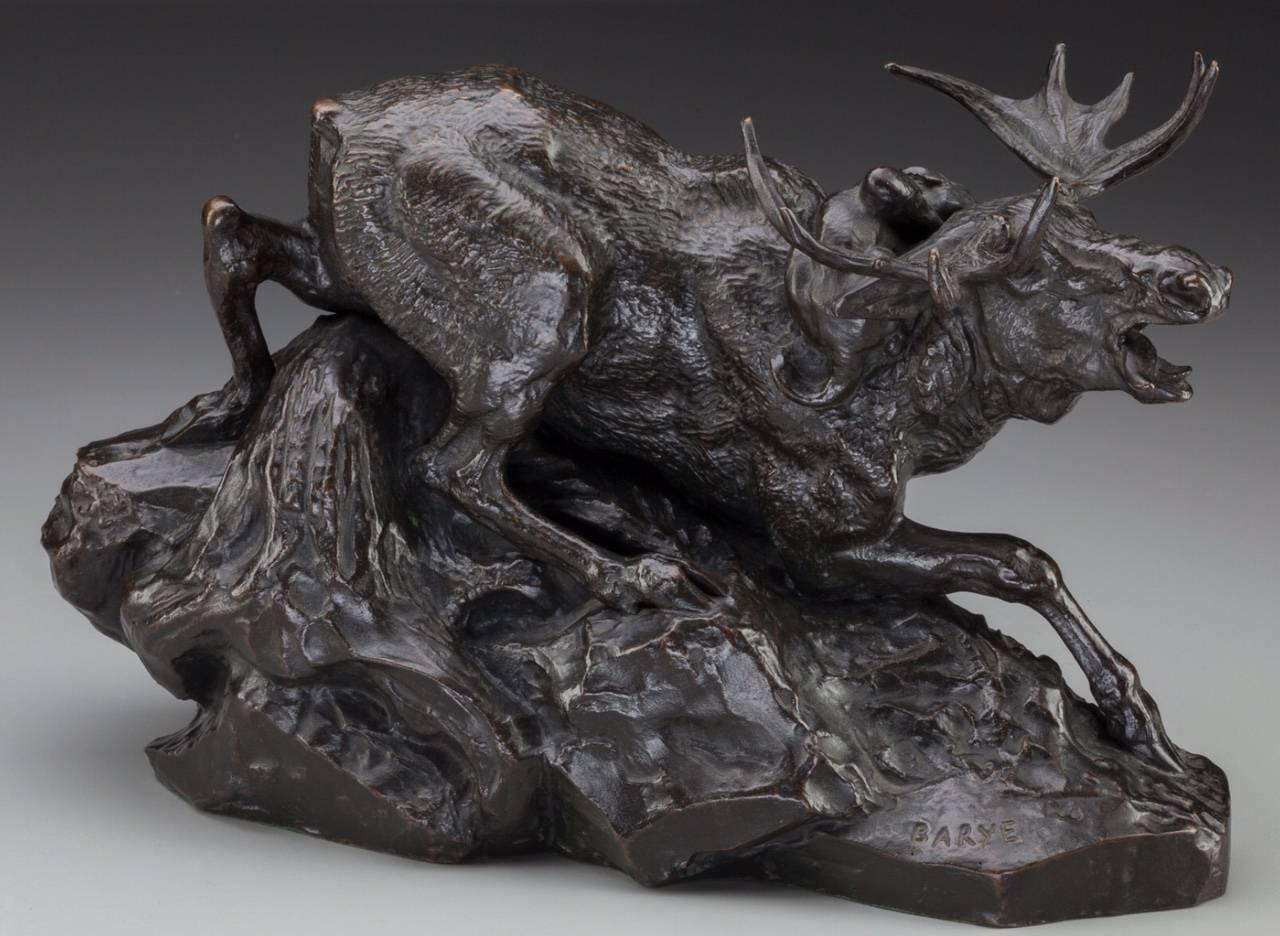
About the Seller
4.9
Gold Seller
Premium sellers maintaining a 4.3+ rating and 24-hour response times
Established in 2000
1stDibs seller since 2015
438 sales on 1stDibs
Typical response time: 1 hour
Authenticity Guarantee
In the unlikely event there’s an issue with an item’s authenticity, contact us within 1 year for a full refund. DetailsMoney-Back Guarantee
If your item is not as described, is damaged in transit, or does not arrive, contact us within 7 days for a full refund. Details24-Hour Cancellation
You have a 24-hour grace period in which to reconsider your purchase, with no questions asked.Vetted Professional Sellers
Our world-class sellers must adhere to strict standards for service and quality, maintaining the integrity of our listings.Price-Match Guarantee
If you find that a seller listed the same item for a lower price elsewhere, we’ll match it.Trusted Global Delivery
Our best-in-class carrier network provides specialized shipping options worldwide, including custom delivery.More From This Seller
View AllLarge Han Dynasty Pottery Sculpture of a Dog TL Tested
Located in Dallas, TX
Han Dynasty life size Terracotta sculpture of a dog. TL Tested
Buried in a tomb for thousands of years; this mingqi companion has decided to come back and accompany the living. I’m actually taking a liking to this pup; most probably a fierce pit bull...
Category
Antique 15th Century and Earlier Chinese Han Animal Sculptures
Materials
Terracotta
$3,760 Sale Price
30% Off
Pair of Han Dynasty pottery Horses and Equestrian Riders
Located in Dallas, TX
A wonderful pair of Ex Sotheby’s painted Polychrome equestrian horse and riders made from gray pottery, presents beautifully and guaranteed authentic with provenance and COA.
Measures: Height 11.5 inches and width 11 inches
Condition: Possible professional restorations but not detectable.
Provenance: Sotheby’s London. 16th November, 1999. Lot 12 (2 of 4 horsed in that lot)
Sotheby’s New York, NY September 14, 2019.
AVANTIQUES is dedicated to providing an exclusive curated collection of Fine Arts, Paintings, Bronzes, Asian treasures, Art Glass and Antiques. Our inventory represents time-tested investment quality items with everlasting decorative beauty. We look forward to your business and appreciate any reasonable offers. All of our curated items are vetted and guaranteed authentic and as described. Avantiques only deals in original antiques and never reproductions. We stand behind our treasures with a full money back return if the items are not as described.
The importance of the horse in the history and culture of China can be viewed, in part, through the artistic legacy of this great civilization. In sculpture, painting, and literature, horses were glorified and revered. Horses were believed to be related to mythological dragons, reflecting their sacred status within society. During the unification of China under the Han Dynasty, bands of mounted nomadic warriors from the north threatened the country. In order to thwart their attacks, the Chinese sought to import stronger, faster steeds from Central Asia (as opposed to the Mongol ponies used by the invaders), eventually leading to the creation of the Silk Road. This small sculpture of a mounted soldier reveals the crucial military role of the horse. When compared to the diminutive stature of the rider, the importance of the horse becomes readily apparent. This creature provided security and strength, allowing the empire to secure its borders and expand its influences across Central Asia. The magnificent regalia of the horse, including a brilliantly painted saddle in red and green/gold, reflect the respect this animal received. The warrior as well is gorgeously decorated with a painted red tunic and gray chest...
Category
Antique 15th Century and Earlier Chinese Han Animal Sculptures
Materials
Pottery
Northern Wei Dynasty Terracotta Sculpture of Buddha 386-534 AD
Located in Dallas, TX
C. 386-534 AD. Chinese Northern Wei Dynasty.
A interim Han-Tang Dynasty terracotta brick in a cream-coloured fabric featuring a beautiful depict...
Category
Antique 15th Century and Earlier Chinese Han Figurative Sculptures
Materials
Terracotta
Large Han Dynasty Terra-cotta Court Lady Figure TL Tested
Located in Dallas, TX
Huge Han Dynasty Terracotta figure Of A Court Lady. TL Test conducted by Ralf Kotalla Laboratory in Germany. Report included.
Height: 29...
Category
Antique 15th Century and Earlier Chinese Han Figurative Sculptures
Materials
Terracotta
Northern Wei Dynasty Terracotta Sculpture Of A Seated Buddha 386-534 AD
Located in Dallas, TX
C. 386-534 AD. Chinese Northern Wei Dynasty.
A pre Tang Dynasty terracotta brick in a cream-coloured fabric featuring a beautiful depiction of a...
Category
Antique 15th Century and Earlier Chinese Han Figurative Sculptures
Materials
Terracotta
Han Dynasty Polychromed Horse and Rider
Located in Dallas, TX
A fine Han dynasty polychrome painted terracotta horse and rider. The warrior is dressed in orange and black on a black horse.
Measures: Height 14 inches (35 cm)
Width 12.5 inches (32 cm).
Condition: Excellent with tastefully undetectable repairs.
During the unification of China under the Han dynasty, bands of mounted nomadic warriors from the north threatened the country. In order to thwart their attacks, the Chinese sought to import stronger, faster steeds from Central Asia (as opposed to the Mongol ponies used by the invaders), eventually leading to the creation of the Silk Road. This small sculpture of a mounted soldier reveals the crucial military role of the horse. When compared to the diminutive stature of the rider, the importance of the horse becomes readily apparent. This creature provided security and strength, allowing the empire to secure its borders and expand its influences across Central Asia. The magnificent regalia of the horse, including a brilliantly painted saddle in red and green/gold, reflect the respect this animal received. The warrior as well is gorgeously decorated with a painted red tunic and gray chest...
Category
Antique 15th Century and Earlier Chinese Han Figurative Sculptures
Materials
Terracotta
You May Also Like
Chinese Han Dynasty Glazed Hu Vessel with Petite Handles, circa 202 BC-200 AD
Located in Yonkers, NY
A Chinese Han dynasty period glazed ceramic Hu vessel circa 202 BC-200 AD, with petite decorative handles and wavy motifs. Crafted in China during the Han dynasty, this wine vessel, called a Hu vessel, features a circular belly topped with a narrow flaring neck. Adorned with wavy motifs and showcasing lateral decorative handles, this Han Hu...
Category
Antique 15th Century and Earlier Chinese Han Ceramics
Materials
Pottery
Han Dynasty, Laying Doe Wood Sculpture, China 100AD
Located in PARIS, FR
Superb sculpture of a laying doe from the Chinese Han Dynasty (206BC-220AD). Remainders of polychromic paint, namely red, symbol of good fortune and joy as well as the season of summer, and green, symbol of vigor and vitality and the season of spring. Mounted on base.
A similar sculpture in bronze is kept at the Met Museum with the following description " A low bed, small table, and screen were often the only furnishings in a Han-dynasty room. The floors were generally covered with mats kept in place with weights in the shape of single animals, fighting beasts, or entertainers."
Condition seen in pictures.
Dimensions in cm ( H x L x l ) :
- Sculpture : 35 x 40 x 10
- With base : 45.5 x 44 x 15
The Han Dynasty ruled China from 206 B.C. to 220 A.D. and was the second imperial dynasty of China. It is known for its promotion of Confucianism as the state religion and opening the Silk Road trade route to Europe, permanently altering the course of Chinese history. Han Dynasty art and inventions like paper still influence the world today.
From the Han Dynasty to the present, deer can be found in many materials and media—rock crystal, nephrite, ink on paper, porcelain, cloisonné enamel, jade, bamboo root, textile, bronze, etc.—alone or in groups, among trees and rocks and in various positions. They appear on everyday objects, from boxes to incense burners, incense holders, lamps, mirror holders and the droppers scholars used when they wrote. A symbol of longevity and grace in Chinese mythology, the word deer is pronounced lu, a homonym for emoluments—favors granted to officials. They therefore represent wealth, nobility and success in imperial examinations (civil service exams for selecting candidates for the state bureaucracy in Imperial China).
Deer were the faithful companions of Shu Lao, the god of longevity, and the goddess Magu. They were reputed to live long and to be the only creature able to find the mushroom of immortality, linghzhi. Although its spots are different, deer are sometimes confused or associated with stags, a Manchu hunting trophy whose antlers served to make prestigious furniture. (La Gazette Drouot, Claire Papon)
For the colours found on this piece, in Chinese culture, red symbolizes good fortune and joy. Green, symbolizes the spring when everything is brimming over with vigor and vitality.
The Han Dynasty (206 B.C. to 220 A.D.) continued the Qin Dynasty’s use of dark colours, but incorporated red. During the earlier years, or Western Han Dynasty, ordinary people wore red while court dress was black. Shoes were red in color. The clothing worn for sacrificial rites was black edged with red. In the later Eastern Han Dynasty, red symbolized the dynasty’s “fire Virtue” and became predominant. Court dress was red. Sacrificial rites called for a red-edged white layer under robes with red socks...
Category
Antique 15th Century and Earlier Chinese Han Mounted Objects
Materials
Wood
Large Chinese Terracotta Tomb Figure East Han Dynasty
Located in Atlanta, GA
A Chinese terracotta tomb figure (Ni Yong) from East Han Dynasty (25-220 AD), likely from the area of nowadays Sichuan. It appears to depict a groom figure with attires and harness i...
Category
Antique 15th Century and Earlier Chinese Han Sculptures
Materials
Terracotta
Fanghu Han Dynasty 206BC-220AD Chinese Bronze Ritual Wine Vessel Jug & Cover
Located in West Sussex, Pulborough
We are delighted to offer for sale this exceptionally important and highly collectable museum quality original Chinese bronze ritual wine vessel and...
Category
Antique 15th Century and Earlier Chinese Han Antiquities
Materials
Bronze
Chinese Han Dynasty Pottery Horse Head
Located in Bradenton, FL
Chinese Han Dynasty Pottery Horse Head. Crisply modelled with sharp features, including a gaping mouth, nostrils, eyes, ears and an alert exp...
Category
Antique 15th Century and Earlier Chinese Han Animal Sculptures
Materials
Pottery
Chinese Terracotta Tomb Figure East Han Dynasty
Located in Atlanta, GA
A small Chinese terracotta tomb figure (Ni Yong) from East Han dynasty (25-220 AD), likely from the area of nowadays Sichuan. It depicts a sitting male wit...
Category
Antique 15th Century and Earlier Chinese Han Ceramics
Materials
Terracotta
Recently Viewed
View AllMore Ways To Browse
Tomb Warriors
Warrior Dynasty
Emperors Robe
Chinese Terracotta Figures
Terracotta Warrior
Han Warrior
15th Century Collars
Chinese Terracotta Warriors
Han Dynasty Warrior
Porcelain Figurines Girl
Vienna Bronze Bergmann
Empire Napoleon I
Han Dynasty Bronze
Helmet Stand
Large Mexican Pottery
Marble Sphinx
Nude Male 19th
Sculpted Bronze Vintage
